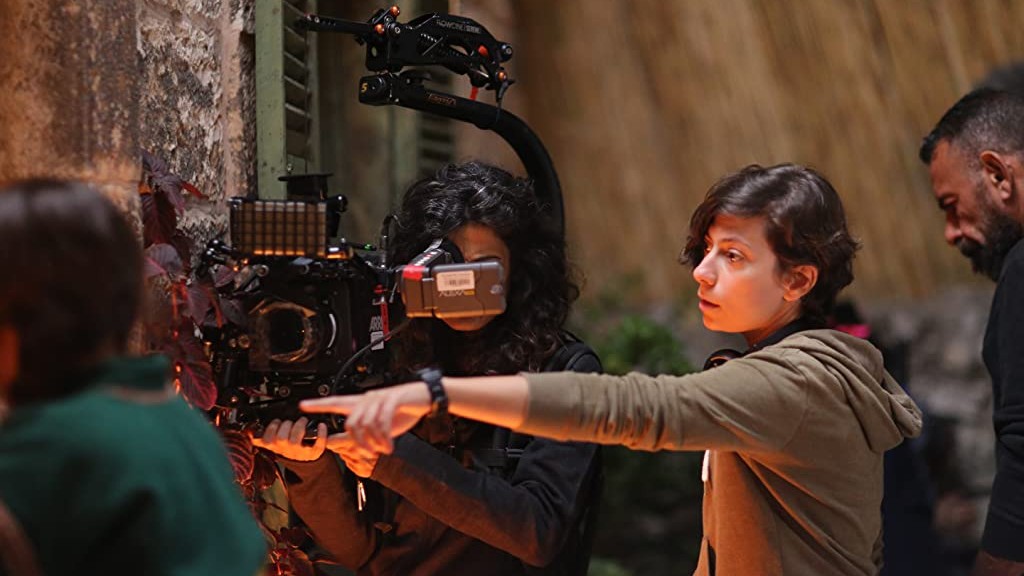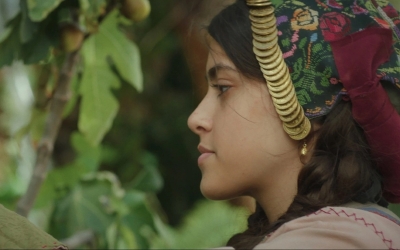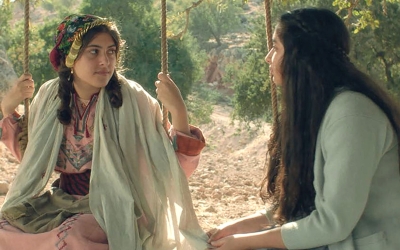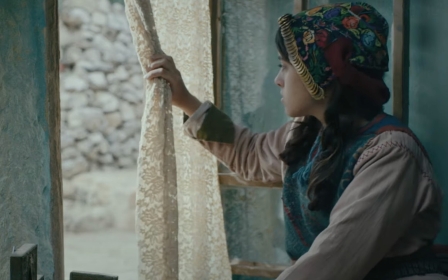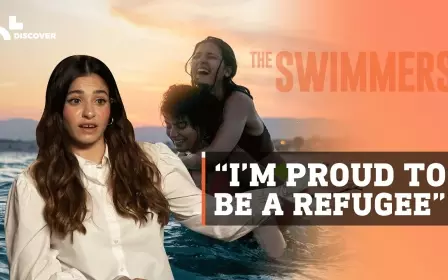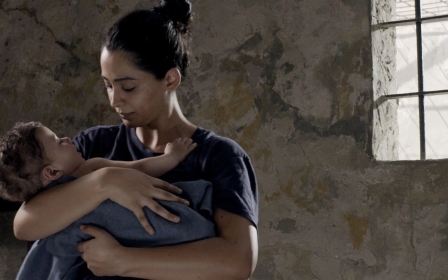'We told the truth': Darin Sallam on portraying the Nakba in Netflix's 'Farha'
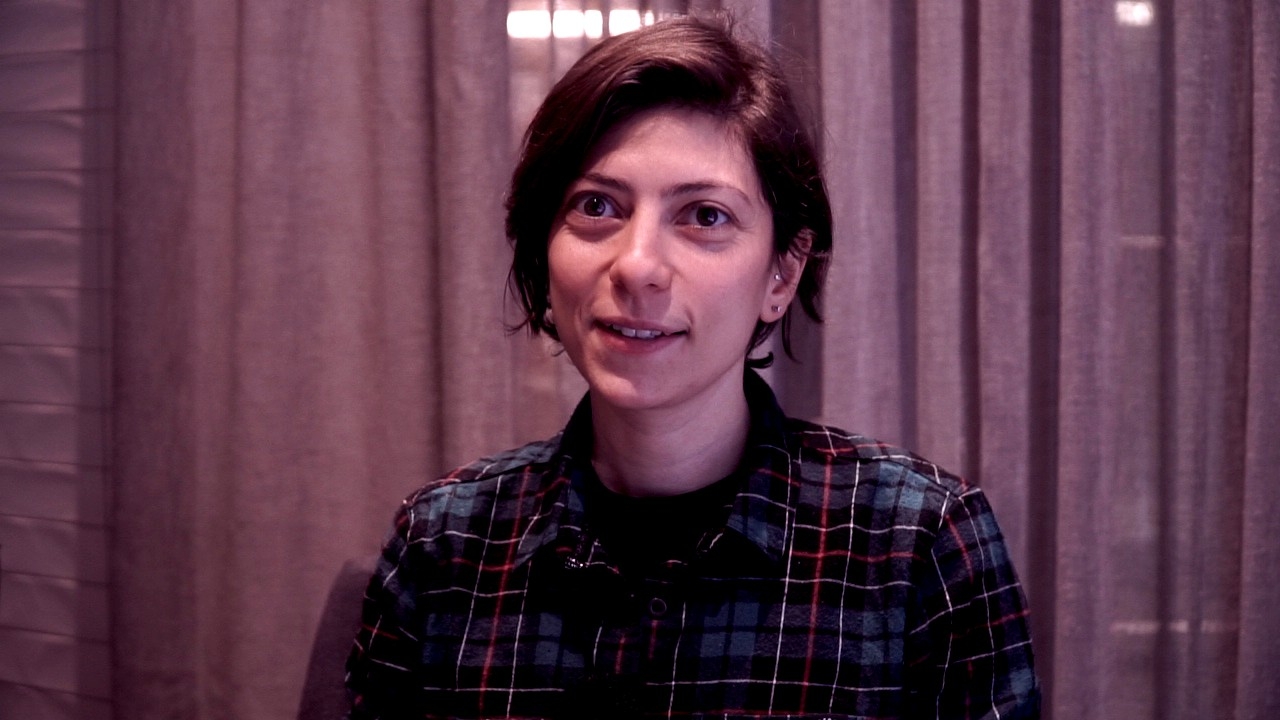
Darin Sallam says it feels as if she's waited all her life to make this film.
The 35-year-old Jordanian of Palestinian descent says she can't recall when she first heard about Radieh, the young Palestinian girl who was hidden in a room by her father as Zionist militia raided their village during the Nakba in 1948.
All she knows is that the story, one of many about The Catastrophe, in which hundreds of thousands of Palestinians were ethnically cleansed as the new state of Israel came into being, moved her to one day tell the world about what happened in 1948.
It was around 2011, then, as a student in film school at the Red Sea Institute for Cinematic Arts (RSICA), that she found herself writing a treatment about the story of the little girl she had heard from her mother.
The impulse to write the film came to her as a sign. In her eight-page summary of her proposed feature film in 2011, she named the little girl Farha.
New MEE newsletter: Jerusalem Dispatch
Sign up to get the latest insights and analysis on Israel-Palestine, alongside Turkey Unpacked and other MEE newsletters
'Farha means joy. And Palestine was the joy that was stolen from the Palestinians'
- Darin Sallam, director
"Farha means joy. And Palestine was the joy that was stolen from the Palestinians. I knew this was the film I wanted to make as a feature," the 35-year-old Sallim tells Middle East Eye during a visit to New York City over the past week to promote and discuss her new film Farha that has resonated with Palestinians around the world.
The film, currently being streamed on Netflix, is a historical drama based on the true story of a Palestinian girl who is separated from her father and her larger family, when the Haganah militia entered their village following the British partition of Palestine in 1948.
Farha (Karam Taher) is locked inside a storage room by her father (Ashraf Barhom) who goes out to join the resistance. She is then left to fend for herself amid extraordinary instability unfolding outside the house.
As the hours and days go by, Farha is stuck without food or water in a dusty room with little air. Outside, waves of gunfire and blasts; screams and cries for help hang in the air, leaving the teenager terrified but also helpless, and alone.
She searches for food, scratches at the door, she gags on the sour water she squeezes out of a bottle storing akkawi cheese.
Later, she bears witness to a massacre of a Palestinian family through the cracks in the door. The camera barely moves out of the pantry, but it makes for riveting, but harrowing, viewing.
The collapse of Farha's dreams as the village empties out and the gunshots fade is devastating.
Since it premiered at Toronto International Film Festival in 2021, the film has received ringing endorsements from filmmakers and juries across the globe for its cinematography and direction; it has more importantly received an outpouring of love from Palestinians for its depiction of the Nakba, considered something of a unicorn in international film.
Farha has now been screened in around 40 film festivals and won several awards. Sallam says the response has left her and her team overjoyed.
The film was an emotional experience because many of the extras were Palestinian refugees from the Gaza camp (Jerash camp) in Jordan, who are the living embodiment of the Nakba. Even the embroidery for the film was made by the women from the camp.
She says that there were times they had to stop shooting because the extras were crying.
"The Nakba was never shown before through the eyes of a 14-year-old-girl. And you can’t not feel for her ... I didn’t want to treat Farha as a number. I wanted to tell her story. I wanted to treat her as a human being, as a child," Sallam says.
"You know people are watching the film - in Toronto or London - and then they imagine that Farha is their daughter. It’s more powerful like this.
"It's an eye-opener to people. People are leaving the cinema and writing "Al-Nakba" on Google. It's emotional, it touches people's hearts and for me it’s why we make films. I hope the film lives and is passed on to generations to come," she added.
And Sallam has hit a nerve. Several Palestinians wrote that the film made them think of the experiences of their elders whose futures, like Farha's, were ripped from beneath their feet without any explanation in 1948.
"Farha was my grandma. She was all of our young, hopeful, ambitious grandmas who's life was shattered because of the Nakba. Every scene of Farha was a visual of the oral histories we've been told for generations," Rifqa Falaneh, a Palestinian-American activist, told MEE.
'We told the truth'
The film's inclusion on Netflix, the international streaming service, has evoked condemnation from the Israeli government.
Observers noted that Israeli threats to cancel their subscriptions to Netflix and defund cultural organisations that screen the film only illuminated Israel's commitment to quash discussion about the Nakba and deny the ethnic cleansing of Palestinians as a historical fact.
Several office-bearers accused the filmmaker of creating a "false narrative" about Israel, pointing specifically to the depiction of the massacre of a Palestinian family in the film.
According to historians, the depiction was "absolutely possible and credible, and even mild in comparison to other accounts", Mondoweiss wrote.
Sallam, too, also came out strongly against the attacks on her and the film, describing them as "organised" and "coordinated" but says she is determined to not allow Zionists to distract from the core message of her film: Palestinians will not be silenced.
"As a Jordanian or Arab with Palestinian roots, you grow up listening to many stories about Palestine, the Nakba. It's part of our identity. It’s part of who we are. Personally, I have a fear of closed places, too. And I could relate to her. I also see myself in her. She is a fighter, she is a rebel, she never accepts 'no' for an answer, she is ambitious, she is me."
In September, the Kingdom of Jordan nominated the film as the country's official entry for the 95th Academy Awards in the International Feature Film category for 2023, raising expectations that it will be shortlisted for next year's Oscars.
But Sallam is unmoved by the new expectations falling on her shoulders.
"I am a believer. It is a sincere film. We did our best. We told the truth and so there is nothing to be afraid of. Everything has its own path. And whatever happens will happen by God's will," she says with a smile.
This article is available in French on Middle East Eye French edition.
Middle East Eye delivers independent and unrivalled coverage and analysis of the Middle East, North Africa and beyond. To learn more about republishing this content and the associated fees, please fill out this form. More about MEE can be found here.


